Two safety inspectors who worked on Spectra Energy’s proposed methane gas pipeline that will cut through Burrillville, RI, say the company cut corners when it came to project, worker and environmental safety.
“Right now, what they’re hoping to do, is they’re hoping to slam all this through, and then at the end ask for forgiveness,” said one of the former inspectors. “Oops, sorry about that, I didn’t know, let me write you a check. Because once this thing’s turning meter, they’re going to be making millions of dollars a day. It doesn’t matter what your problems are…”
The other added, “We were told to shut the fuck up or quit.”
Both men, who spoke on the condition of anonymity, were subcontracted by Spectra and both were terminated from the project this summer. I was introduced to them through FANG (Fighting Against Natural Gas), an environmental group that opposes the project, and have spent time talking with both men by phone as well as reviewing audio interviews and emails provided by FANG.
“Like every other company, Spectra gives a tremendous presentation about their commitment to safety, but their actions lack any kind of resolve. No one ever says, ‘Safety’s #2 here,’” said the first inspector. “At every turn when I made a safety suggestion, I was met with monumental resistance from the company on every level.”
Perhaps suspecting their days are numbered, fossil fuel companies are rushing to build the infrastructure required to keep us dependent on methane or “natural” gas for the next 50 years or more, even as evidence mounts that methane is a major contributor to climate change. This gives lie to the claim that methane will serve as a bridge fuel, something to ease the transition from fossil fuels to green energy sources, as the infrastructure investments being made are long term and permanent. Companies are investing billions laying pipelines, building compressor stations, and constructing energy plants and other infrastructure ahead of industry-wide extinction.
In their rush to build, safety and environmental concerns are being brushed aside, suspect many experts. A recent “Pipeline Safety Trust analysis of federal data,” shows that, “new pipelines are failing at a rate on par with gas transmission lines installed before the 1940s.” Sarah Smith writes that Carl Weimer, director of the Pipeline Safety Trust, told attendees at a National Association of Pipeline Safety Representatives annual meeting in Tempe, AZ that, “The new pipelines are failing even worse than the oldest pipelines.”

Though some of the problems may be related to workers learning how to implement the latest technologies, Weimar says, “there’s also some suggestions that we’re trying to put so many new miles of pipeline in the ground so fast that people aren’t doing construction … the way they ought to.”
In the same piece Smith quotes Robert Hall, of the National Transportation Safety Board Office of Railroad, Pipeline and Hazardous Materials Investigations, who agreed that, “the rapid construction of pipelines in the U.S. is likely a contributing factor to ‘people … out there possibly taking shortcuts or not being as diligent’ as they would be if the pace of construction were less fervent.”
Coming forward to confirm these observations are two former Spectra contractors I’m calling Inspector One and Inspector Two. Both wish to remain anonymous for this piece for personal and professional reasons, though they know that their former bosses may be able to identify them.
Inspector One is a safety contractor who briefly worked for Spectra in the Summer of 2015. His job was to act as the safety inspector for the four compressor stations being built in Burrillville RI, Stony Point NY, Cromwell CT and Chaplain CT. Inspector One claims that safety and the environment are being compromised in the rush to build pipelines.
His job was to document accidents and write reports, correcting behaviors so that accidents will not be repeated. His job is also to be on site and monitor the work, correcting actions that might lead to injuries before they happen. He worked with two other inspectors on his level, and supervised the work of many other onsite inspectors.
“‘Safety Above All Else’ is the slogan, it’s the sticker on our helmets,” he told me. “Instead of talking about what we could do better, and valuing my opinion … what they were doing is they were coaching us, telling us specifically how to circumvent rules.
“First week of being on [the Spectra] job, a guy breaks his leg. Steps out of a trailer that did not have a notice to occupy, steps out, breaks his leg. I wasn’t involved in the process of documenting that accident. I was told, ‘we’ll handle that, we’ve got it under control, don’t worry about it.’ I was told not to write up a report.”
The injuries kept on coming.
“Two weeks before I was let go they had a guy turn an excavator over… with the guy in the cab. How that happens is that you got a guy who doesn’t know the machinery, doesn’t have it rigged properly, doesn’t understand leverage or topography,” said Inspector One. “It’s a pretty big deal when someone turns over a half million dollar machine.”
When contacted, a Spectra spokesperson told me that they have no record of an excavator turnover happening on any of their work sites. I asked if the Spectra system includes subcontractors, and was told they did. When I spoke to Inspector One, he provided more details. “It was the lay down yard in Franklin Ct,” he said. That’s a fab shop where materials are prepared for installation out in the field. The excavator was loading or unloading pipes. “I was told to stay out of it,” he said. “My direct supervisor told me he had it under control.”
Another time, “I had three guys in one day suffer from heat exhaustion.”
Eventually Inspector One’s boss just wanted him to train people to be on site. Before a worker is allowed on site they receive a three hour orientation. Inspector One’s job is to run them through the 90 minute safety training, before they receive their environmental and site specific training. Inspector One suspects that his new focus on training was a way of getting him out of the way, so he wouldn’t be able to report safety violations and slow down the job.
“They were always strategically placing me out of the field when something critical was going on,” says Inspector One, “They started doing work on Sundays, they shouldn’t work on Sundays without me knowing. They had guys working until 11 o’clock at night one night. We get to work at 6:30 in the morning. How can I keep things safe when I work all day and into the night like that? And you don’t even let me know?
“We’ve had guys break their legs, burns, cuts, near misses, dropped objects, slough off in holes, working in standing water in holes, not monitoring spaces, huge violations. Huge violations that anywhere else I’d say ‘you’re gone, you’re gone, you’re gone.’
“I’ve got people working after hours and on weekends to get critical stuff done so that I will not have an opportunity to intervene in it.
“It’s safety above all else until you have a one billion dollar project that’s behind on permits, then its go, let’s go.”
In addition to a lax attitude towards worker safety, Inspector One also alleges some environmental trespasses.
“This is a FERC project, okay? The way we treat the environment is hypercritical, but you got guys pot-shotting deer out of season on our property in New York, and everybody knows it. And they’re throwing them into the back of a truck and driving off with them. Do you know what would happen if that were to be caught? Our whole project would be shut down.”
Spectra does not allow weapons on a work site, says Inspector One, but one worker brought along his bow and arrow, claiming that they were for competitive archery, not hunting. The deer was shot with an arrow, but wasn’t the only imperiled wildlife.
“You know there’s some endangered spotted turtles, I don’t know, I just tell the men don’t touch it. Whatever it is, don’t harass any species, whatever it is, don’t touch it. If there’s a snake that doesn’t disperse on its own leave it alone we’ll get a wrangler out there to deal with it…” says Inspector One, but some among the construction crews didn’t listen. Men were moving snakes or throwing cans to disperse raccoon.
Once Inspector One gets going on the environmental concerns, it’s like a flood gate opened. “I’ve got run off going into goddamn public streams! I got tires not being washed going out onto public roadways. I’m telling them we can’t have this, and if you think I’m a prick, wait until the FERC inspector gets out here… Taking topsoil off the property, to your home to use, that’s not allowed. That soil could be contaminated. Taking metal parts, flanges, elbows, things like that and getting scrap metal money for them so you can buy lunch for your crew that day, it’s not allowed. That stuff could be contaminated with all kinds of cancer causing things that can hurt you, hurt the environment.”
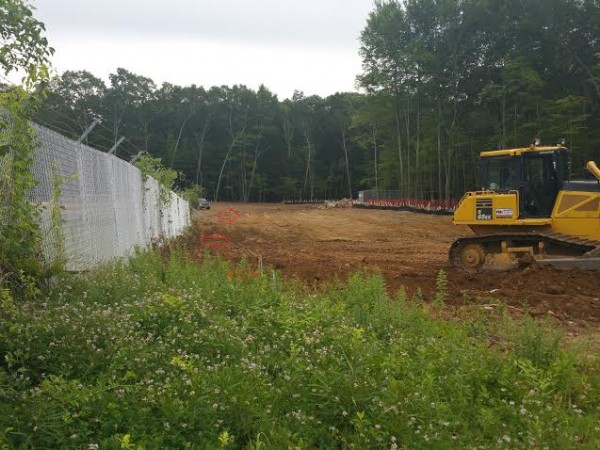 The lack of concern Spectra allegedly showed towards safety and the environment extended to the cultural concerns of Native Americans, maintains Inspector One. “The delaying of our permits was in part due to the ceremonial stones and things like that that are related to the Native American population… I have observed stones moved in New York, but no one has the documentation to say that it is okay. I know where there are ceremonial Indian grounds that have been moved.”
The lack of concern Spectra allegedly showed towards safety and the environment extended to the cultural concerns of Native Americans, maintains Inspector One. “The delaying of our permits was in part due to the ceremonial stones and things like that that are related to the Native American population… I have observed stones moved in New York, but no one has the documentation to say that it is okay. I know where there are ceremonial Indian grounds that have been moved.”
This is where Inspector Two comes in. Before he was let go by Spectra he was an electrical and instrumentation inspector with real concern for the sanctity of sacred spaces. He confirmed much of Inspector One’s story, saying, for instance, “Spectra neither cares for the public nor the workers. This is a fact. They do not care what happens as long as they flow gas.”
Native American land was clear cut far more than was required for the project, says Inspector Two. “They bulldozed 75 percent just for work space… When the big trucks made their delivery no attempts were made to protect the trees.”
Trees were clear cut for temporary parking and work space says Inspector Two. With planning that could have been avoided.
This isn’t simply an issue of a company cutting corners and taking risks with worker safety, endangered turtles and tribal lands. Inspector One says that the behaviors he’s noted could have catastrophic consequences.
“These pipes have to last underground for at least 50 years,” says Inspector One, “If there’s the smallest mistake in their cathodic protection, that’s what’s going to corrode. All of a sudden you’ve got, even at 800-900 pounds of pressure, doesn’t sound like much, but when you’ve got a 42 inch pipe, traveling that distance and it goes ka-bang, you’re not talking about taking out a block, you’re talking about taking out a large area. You’re talking about a humongous ecological impact, you’re talking about displacing hundreds of families, you’re talking about leveling homes, killing people instantly, I mean, if one of those places were to go up, it’s going to be a bad day.”
In 2011 a cast-iron gas pipe cracked, causing an explosion that killed five people in Allentown, PA. Pipes like those are no longer used. But when work is rushed, construction is sloppy and disaster is possible.
“There’s a reason we do what we do,” said Inspector One, “Every bolt is torqued. I know when you torqued it, I know what torque wrench you used, what model number, when it was calibrated. That’s how serious every flange has to be. Because if one of these points blow up you’re talking about a humongous issue. These guys are making those kind of mistakes. They’re short-cutting things, they’re not inspecting things properly, they’re covering stuff up before an inspector’s had a chance to look at it.
“I have had inspectors that have come up to me in the field and have said to me that there is a pipe buried under ground that was not inspected appropriately. And the reason that it was not excavated and inspected is that it cost too much money.”
All pipeline welds are examined with x-rays to make sure they are up to code. After the weld is x-rayed the inspector waits for the film to come back from the lab. “How is it that you have a pipe already buried before you receive the film?” Inspector One asks, noting that he had a tech “receiving the film (on Tuesday) for a pipe buried last Wednesday.”
Spectra has a “has a checkered history of accidents and violations of federal safety rules in the U.S. and Canada dating back decades,” says Dan Christensen writing in the Miami Herald. “Since 2006, the U.S. Pipeline and Hazardous Materials Safety Administration recorded 25 incidents that caused more than $12 million in property damage along Spectra’s main line — the 9,000-mile Texas Eastern Transmission that connects Texas and the Gulf Coast with big urban markets in the Northeast. The causes ranged from equipment failure and incorrect operations to pipe corrosion.”
SpectraBusters has a long list of links to stories about Spectra’s poor performance record.
Inspector One was let go in August. To this day he has not been told why. One day he realized that his computer privileges had been shut down and his laptop erased remotely. His dismissal affected him economically, personally and professionally.
Meanwhile, the hits keep coming.
In June a pipeline rupture closed two miles of river in Arkansas, and in the last few days a chemical leak shut down a Spectra gas plant in British Columbia.
As Rhode Island welcomes more and more gas infrastructure into our state, the question must be asked: Is Burrillville, RI next?
These are “large diameter, high pressure, long distance gas pipelines,” says Inspector One, “A failure represents a catastrophic environmental and personal hazard. Just look at situations like Allentown…
FANG (Fighting Against Natural Gas) is launching a website, SpectraExposed to store full transcripts of their interviews with the two inspectors.



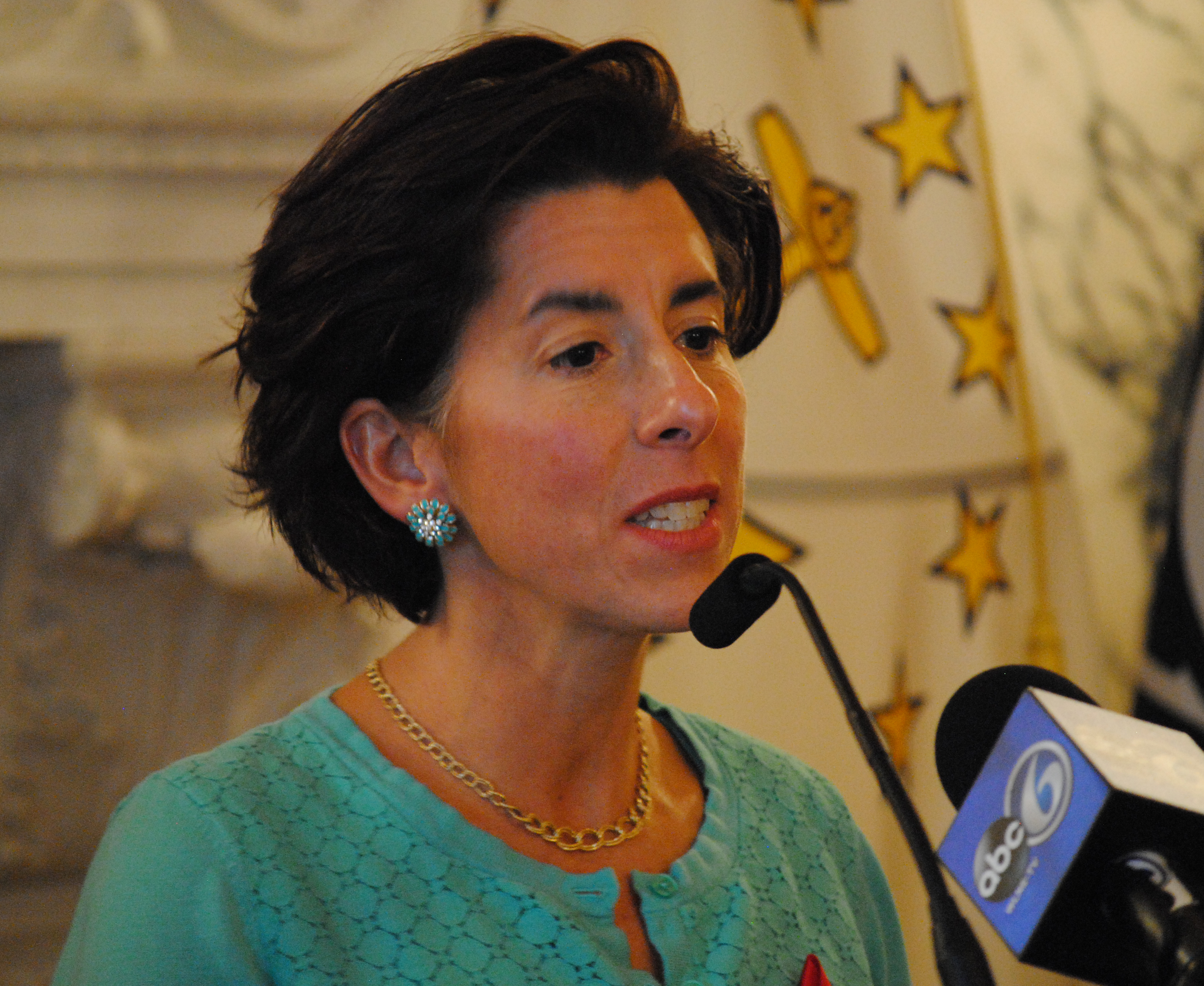
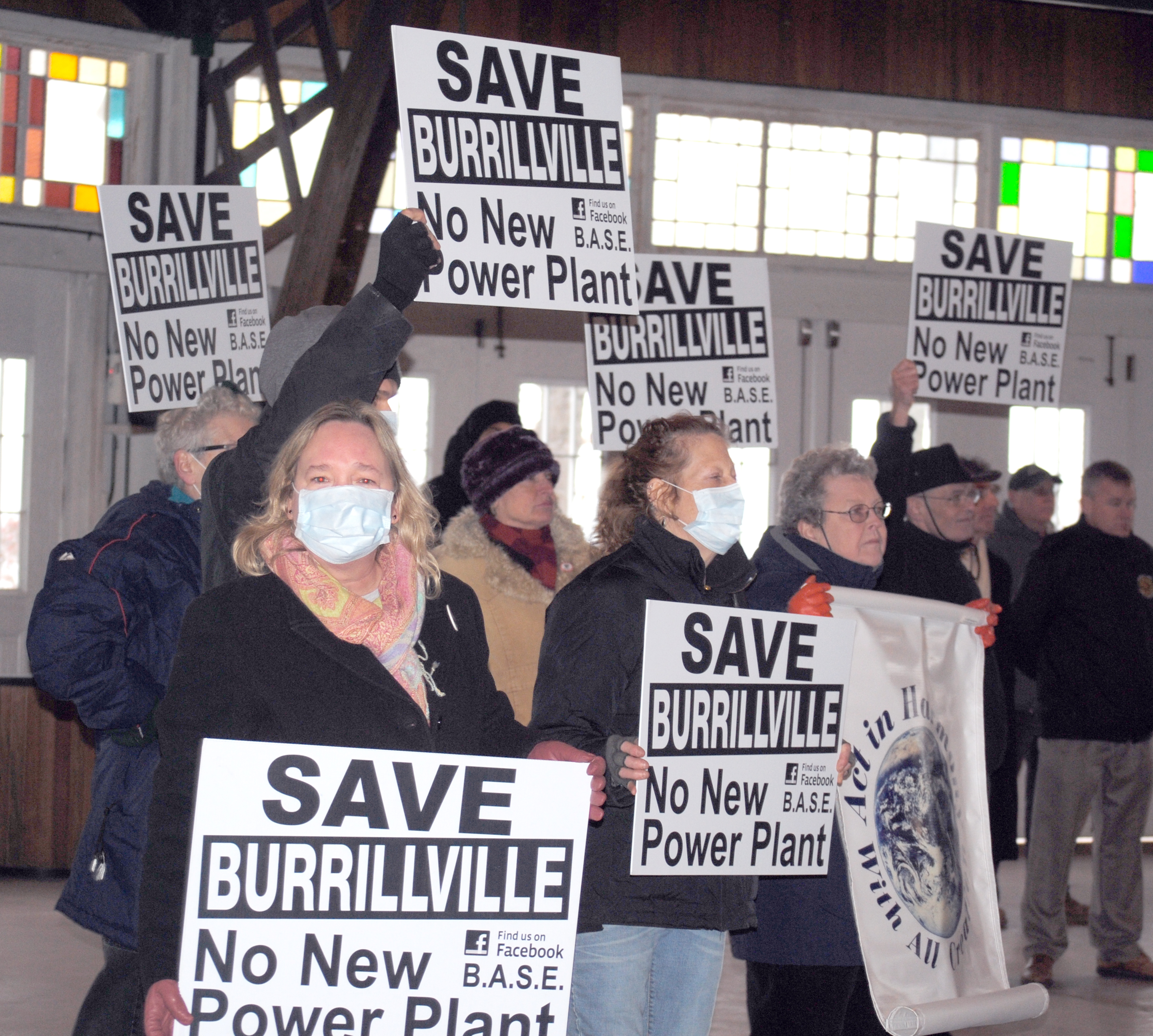
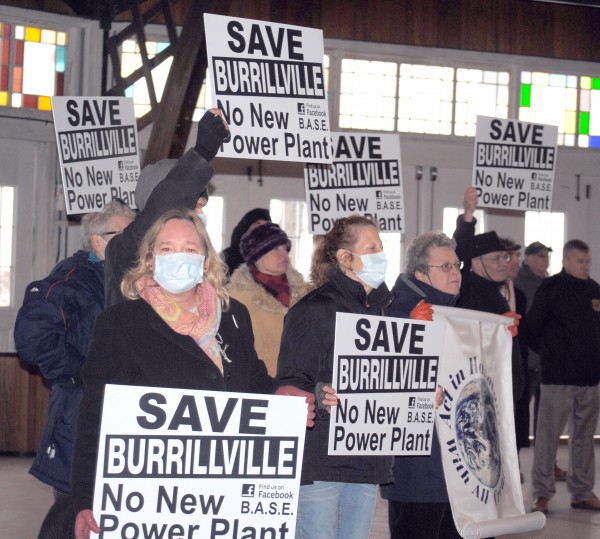 The battle over Invenergy‘s planned fracked gas and diesel oil burning energy plant for Burrillville reaches a fever pitch at the State House this afternoon, starting at 3pm as hundreds of Burrillvile residents hold a rally in the main rotunda announcing their opposition. This is ahead of Burrillville Representative Cale Keable‘s hearing for his bill,
The battle over Invenergy‘s planned fracked gas and diesel oil burning energy plant for Burrillville reaches a fever pitch at the State House this afternoon, starting at 3pm as hundreds of Burrillvile residents hold a rally in the main rotunda announcing their opposition. This is ahead of Burrillville Representative Cale Keable‘s hearing for his bill, 

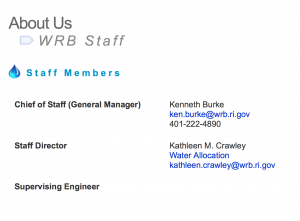
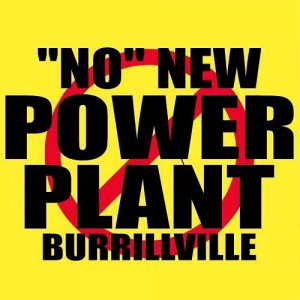
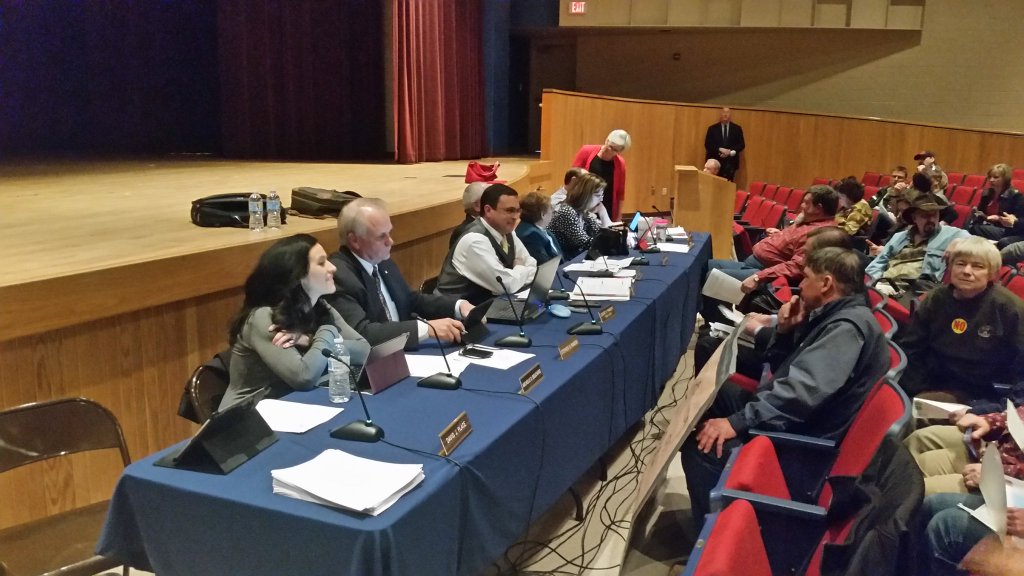
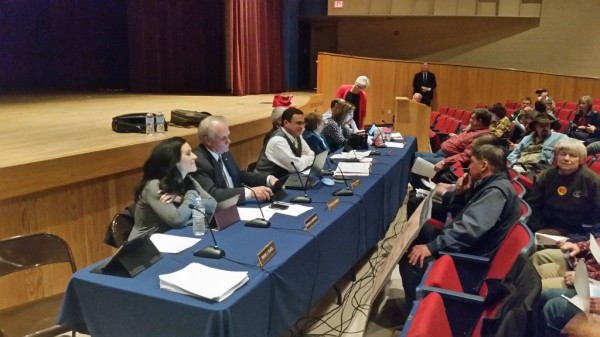


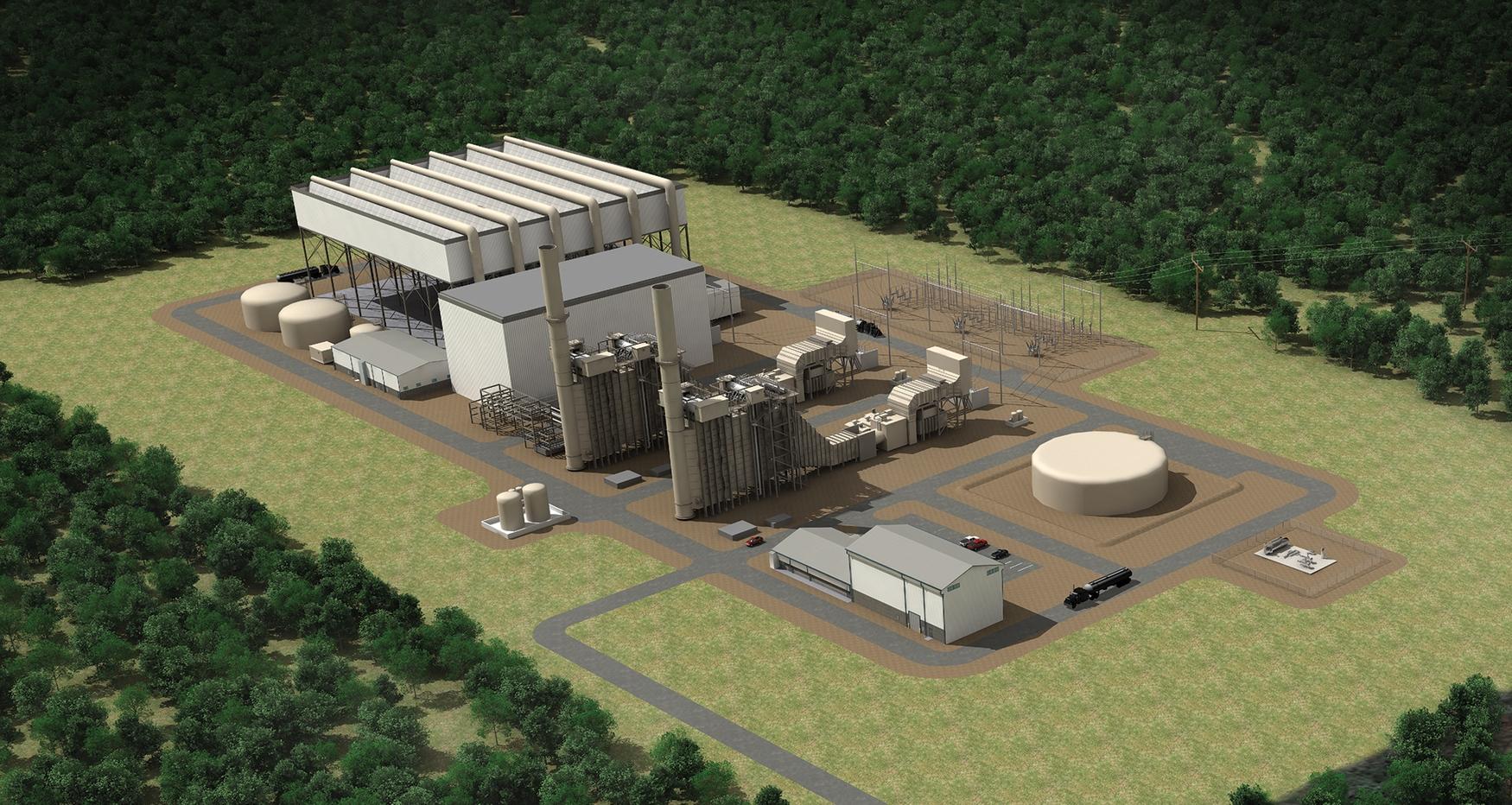
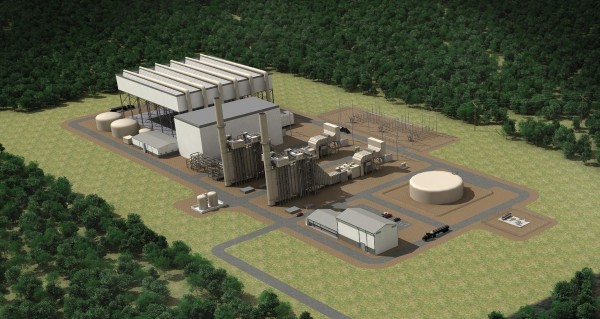 As the Burrillville Democratic Party Chairman, I am stating my opposition to the proposed Invenergy gas power plant in the village of Pascoag.
As the Burrillville Democratic Party Chairman, I am stating my opposition to the proposed Invenergy gas power plant in the village of Pascoag.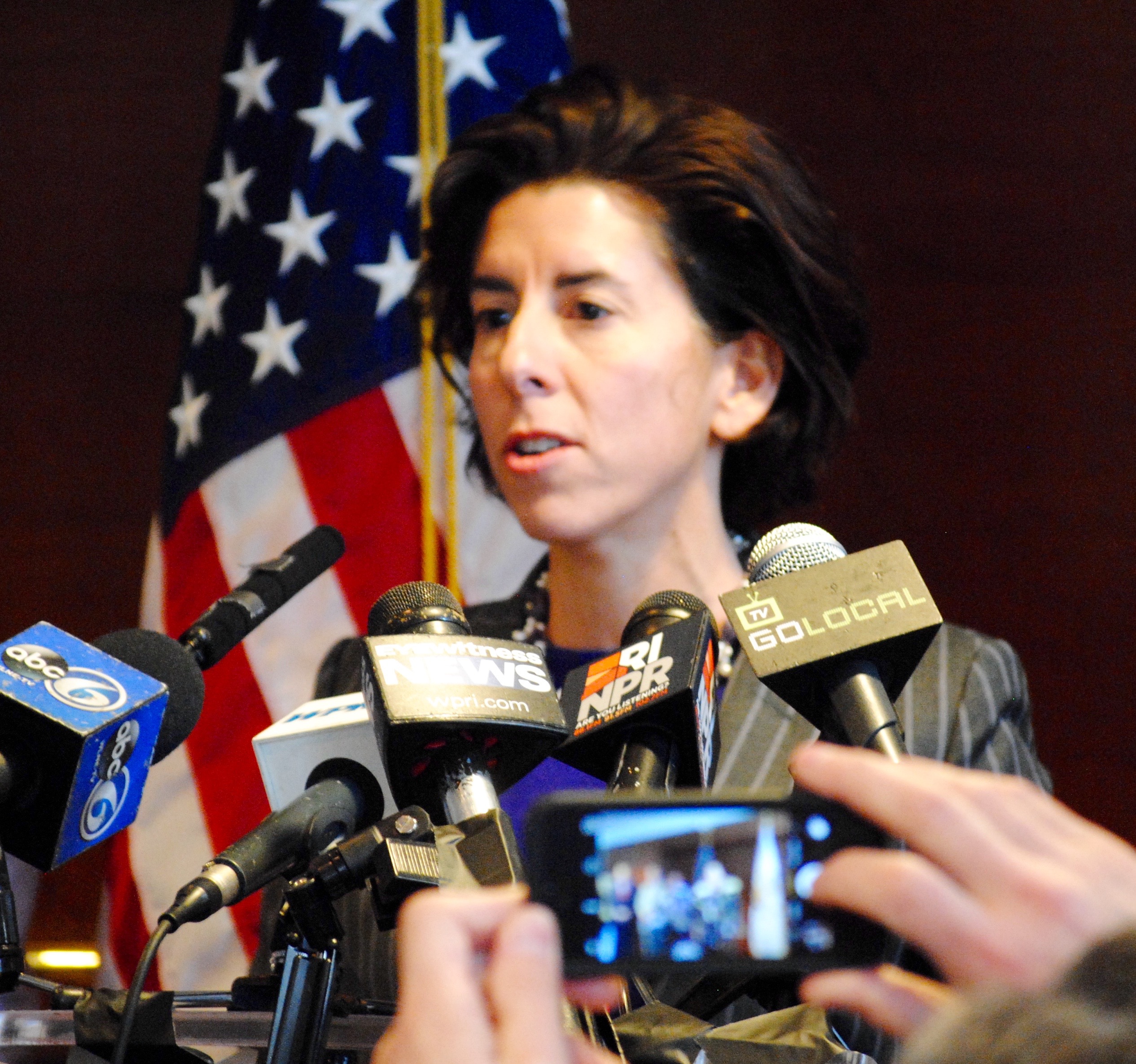


 I went to the hearing in front of the Rhode island Energy Facility Siting Board (EFSB) in Burrillville on March 31 about the proposed Clear River gas fired power plant. Hundreds of people turned out. When we arrived at 5:45 we had to go beyond the High School parking lot into the neighborhood to park. Upon walking up to the school what you saw were about 100 guys in union t-shirts. Inside, the room got very full and I heard that 100 more people stayed outside. There were at least four police officers at the event to help keep the peace.
I went to the hearing in front of the Rhode island Energy Facility Siting Board (EFSB) in Burrillville on March 31 about the proposed Clear River gas fired power plant. Hundreds of people turned out. When we arrived at 5:45 we had to go beyond the High School parking lot into the neighborhood to park. Upon walking up to the school what you saw were about 100 guys in union t-shirts. Inside, the room got very full and I heard that 100 more people stayed outside. There were at least four police officers at the event to help keep the peace.



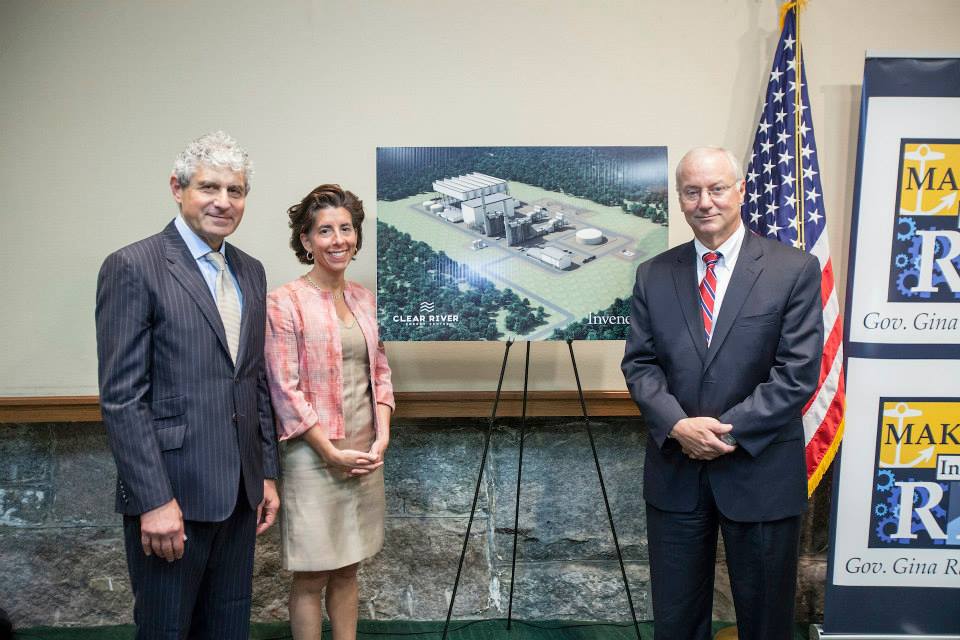
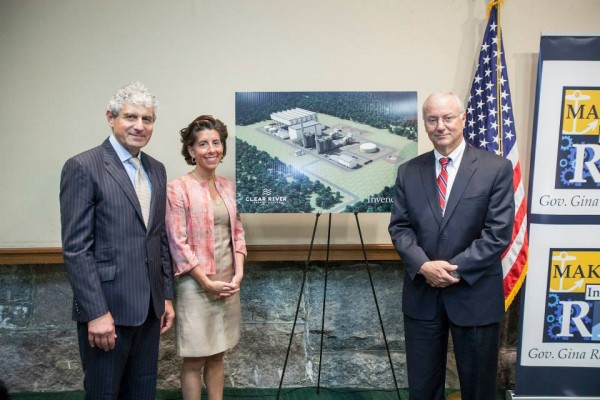 The Clear River Energy Center, a power plant that Invenergy wants to build in Burrillville, has been advertised as a “natural” gas powered facility that will cut climate change causing emissions, but Invenergy’s plans call for “two one million gallon fuel oil storage tanks on site.” The power plant planned for Burrillville is to be equipped with “new combustion turbines” that will be “dual fuel,” meaning they will be able to burn gas or oil.
The Clear River Energy Center, a power plant that Invenergy wants to build in Burrillville, has been advertised as a “natural” gas powered facility that will cut climate change causing emissions, but Invenergy’s plans call for “two one million gallon fuel oil storage tanks on site.” The power plant planned for Burrillville is to be equipped with “new combustion turbines” that will be “dual fuel,” meaning they will be able to burn gas or oil.
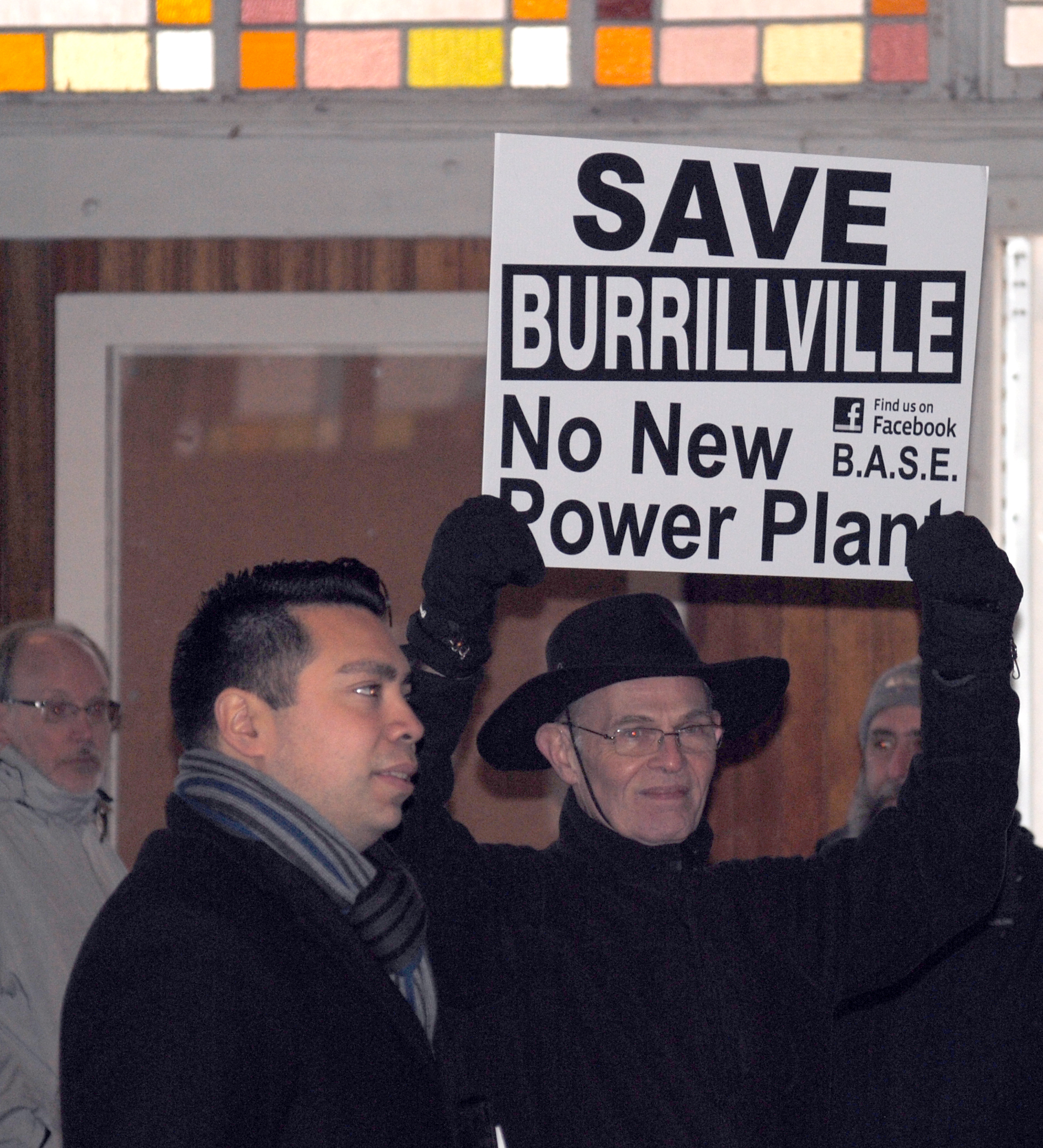
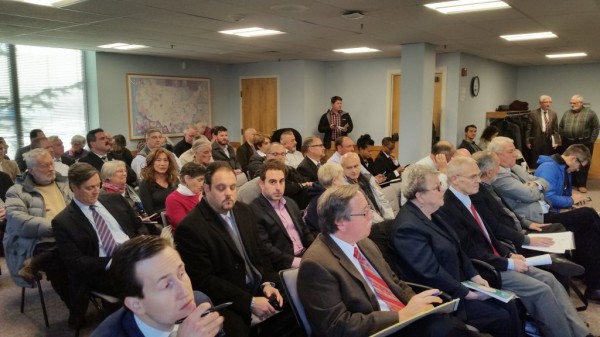 The new methane gas power plant planned by Invenergy for the Town of Burrillville met strong opposition from a variety of environmental groups but also had what seemed like strong support from both members of the
The new methane gas power plant planned by Invenergy for the Town of Burrillville met strong opposition from a variety of environmental groups but also had what seemed like strong support from both members of the 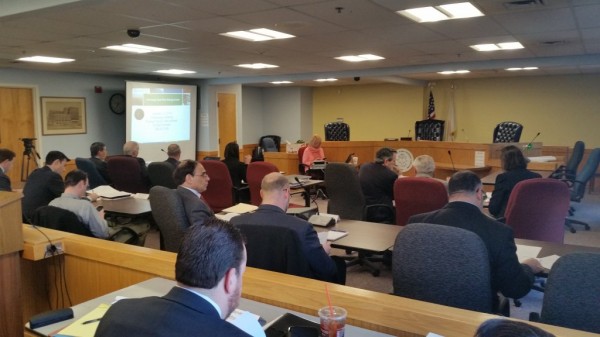
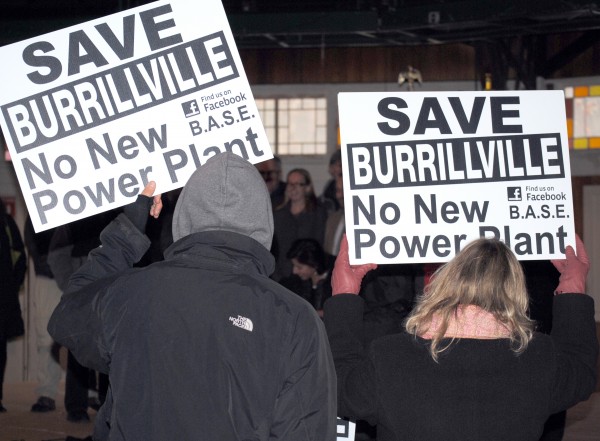
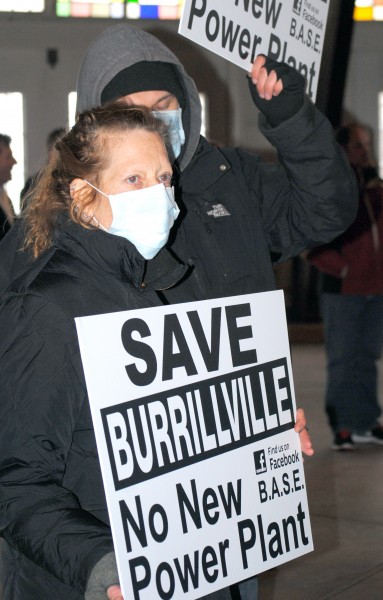 In a
In a 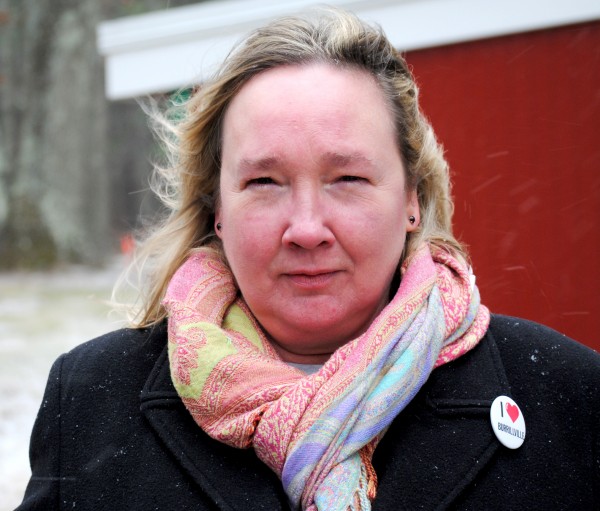

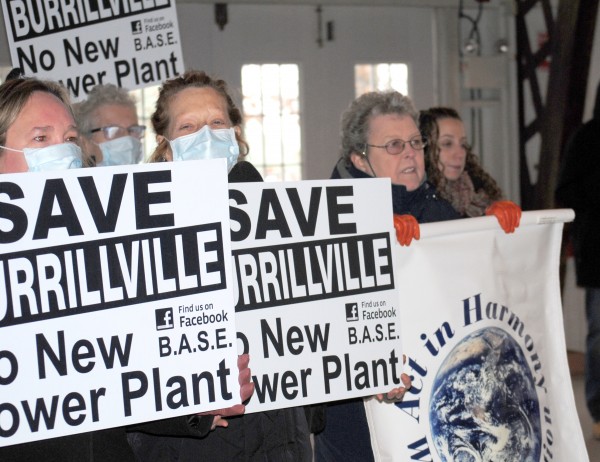
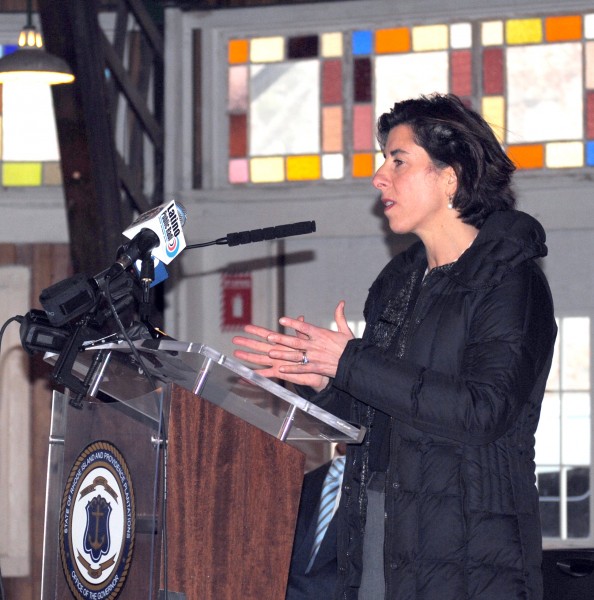
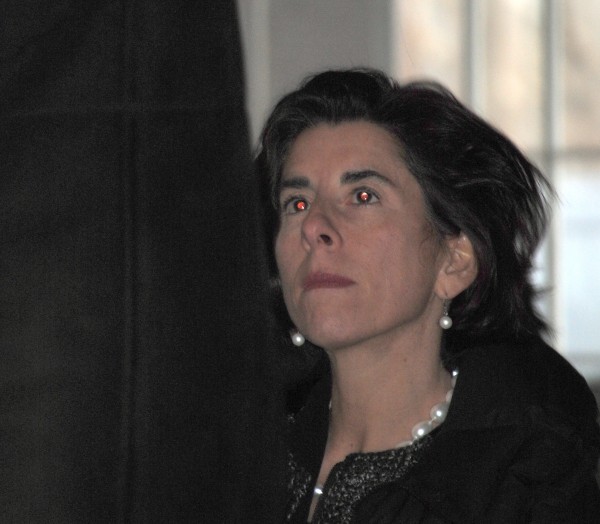
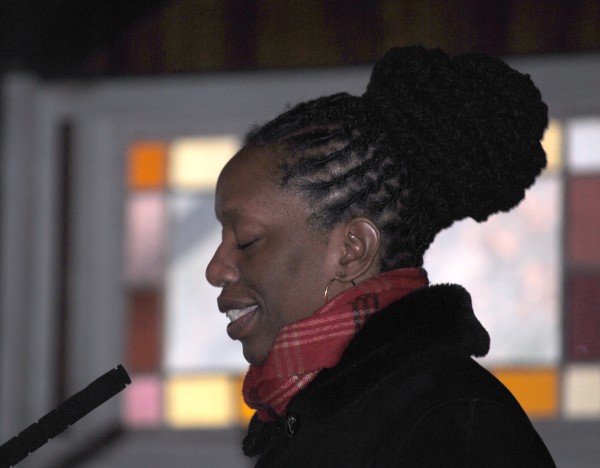
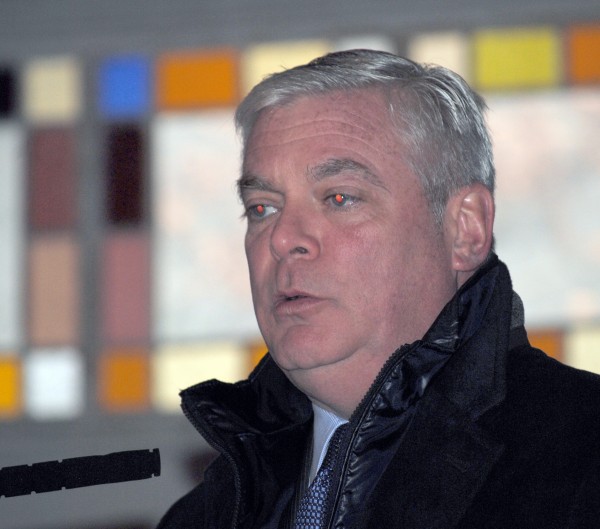
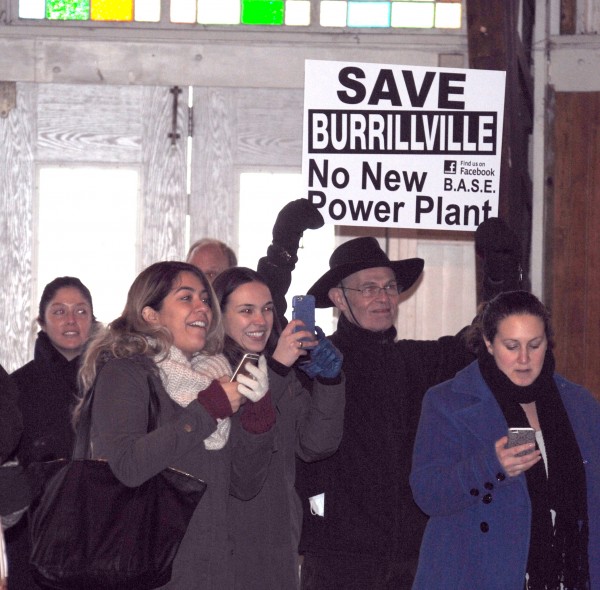
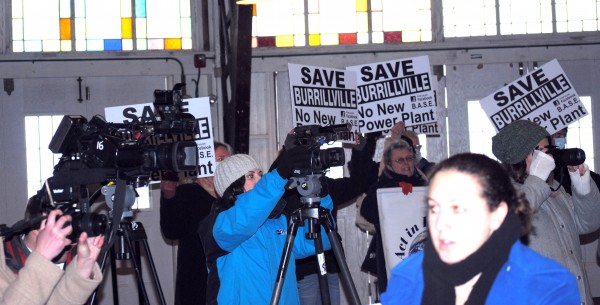
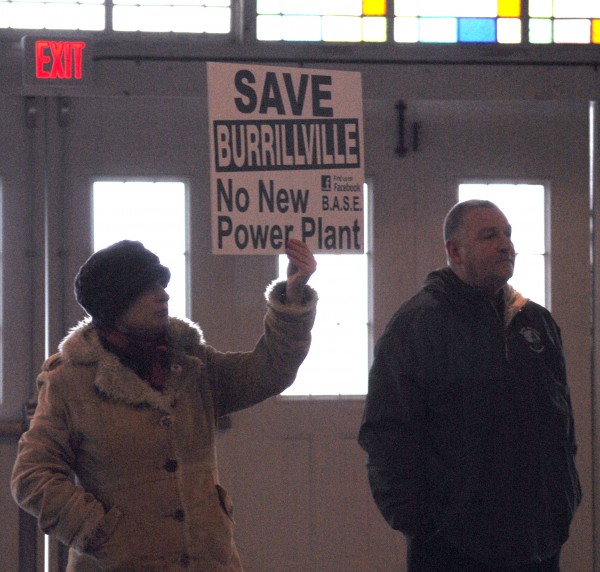
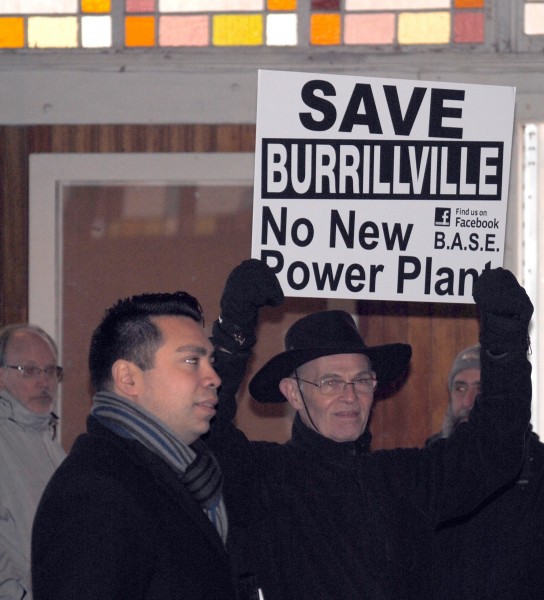
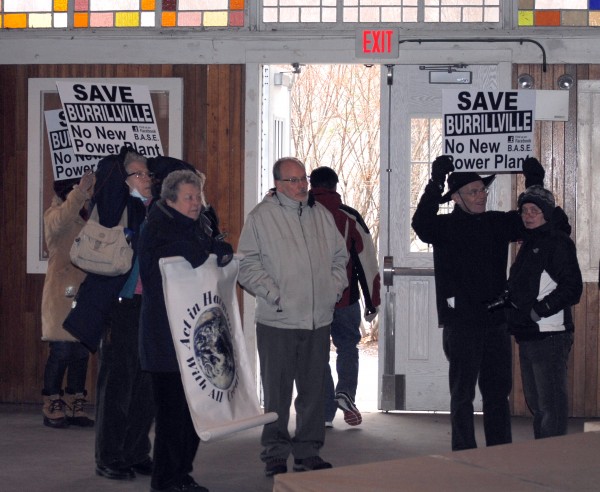
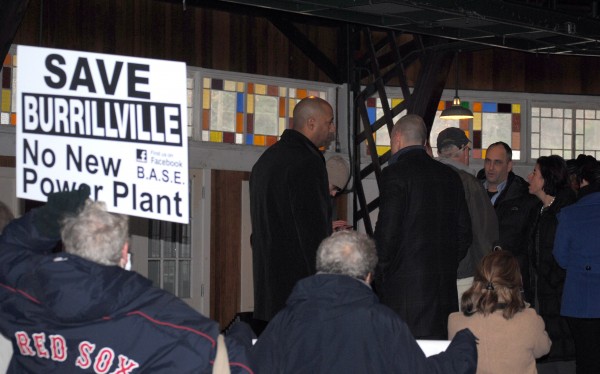
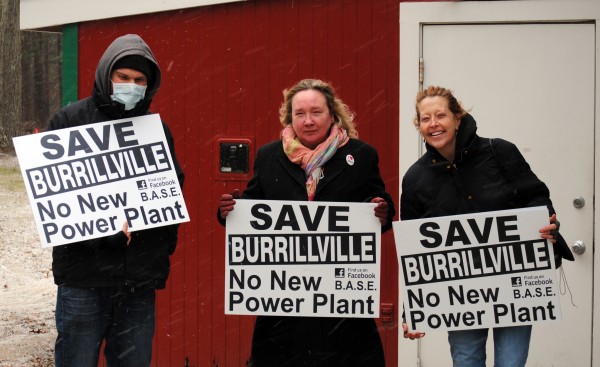

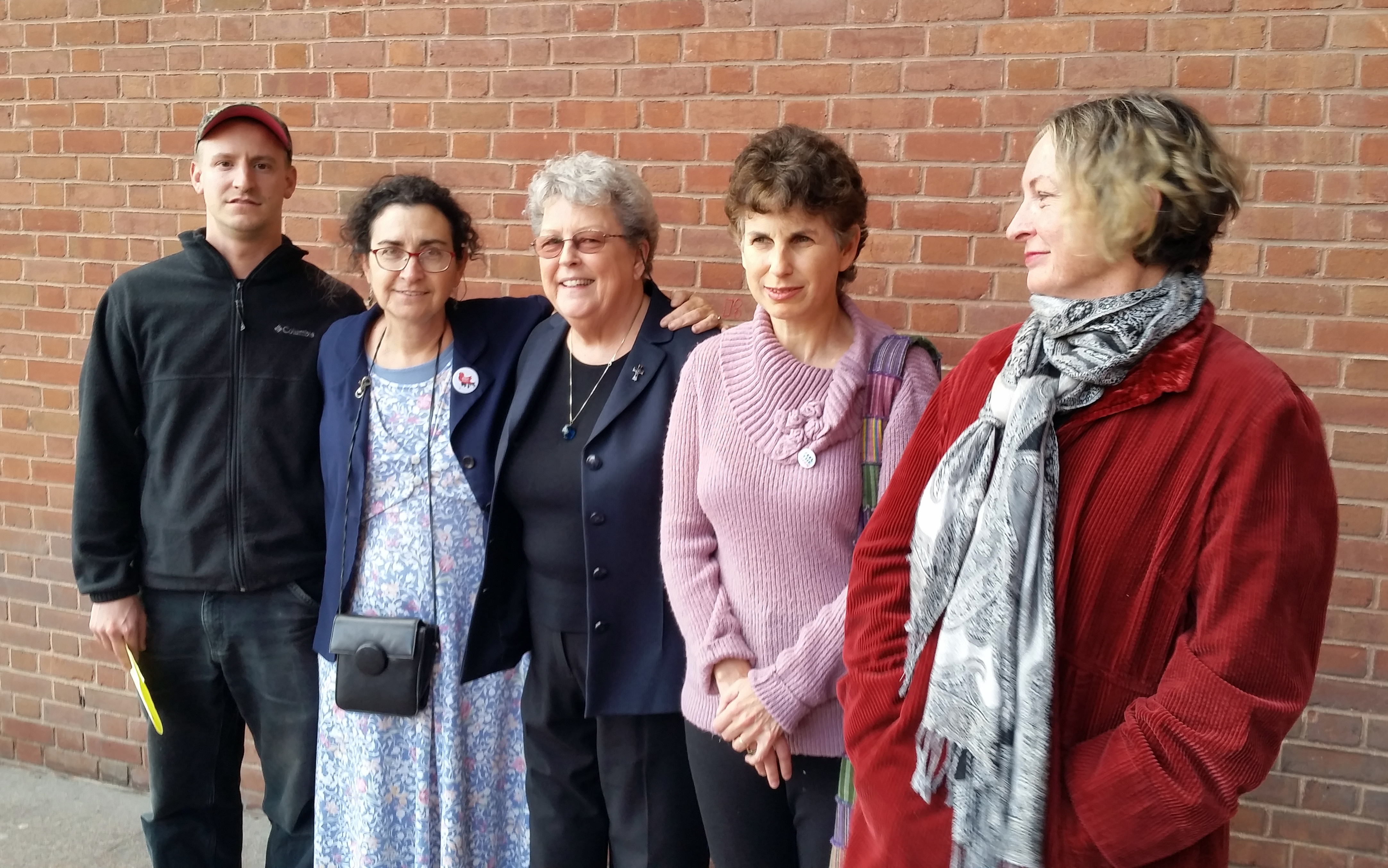
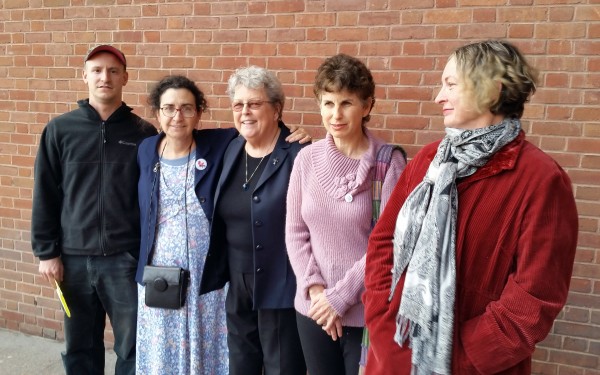
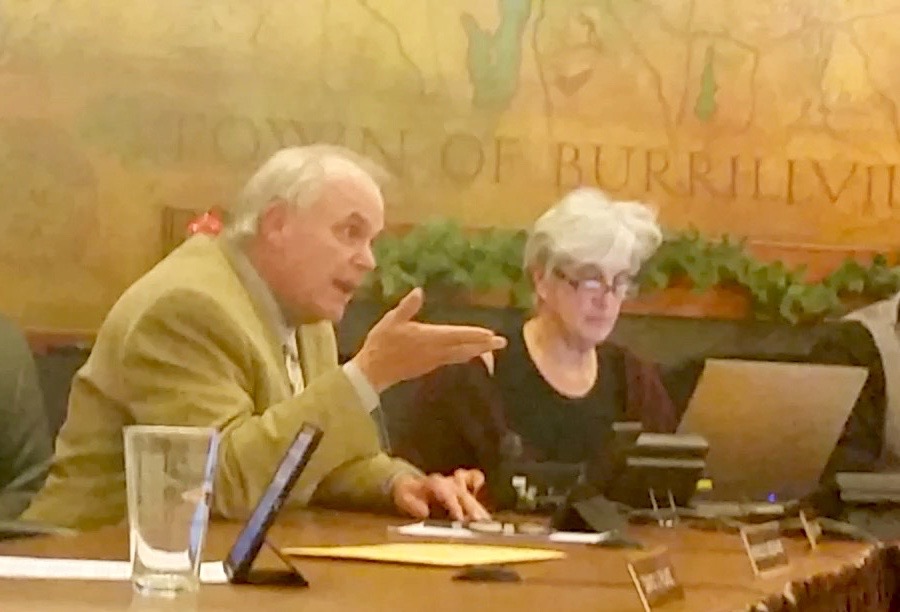
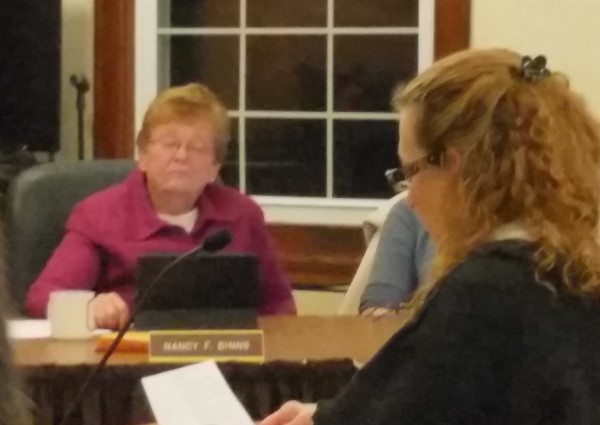
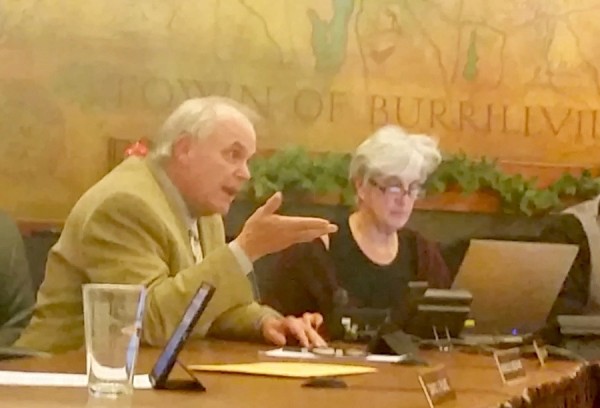
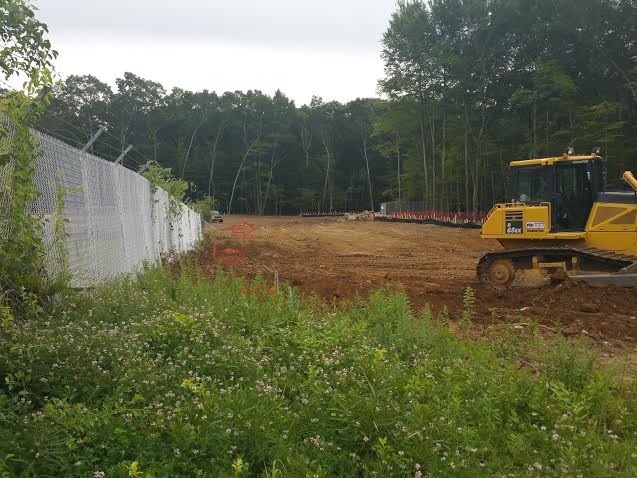

 The lack of concern Spectra allegedly showed towards safety and the environment extended to the cultural concerns of Native Americans, maintains Inspector One. “The delaying of our permits was in part due to the ceremonial stones and things like that that are related to the Native American population… I have observed stones moved in New York, but no one has the documentation to say that it is okay. I know where there are ceremonial Indian grounds that have been moved.”
The lack of concern Spectra allegedly showed towards safety and the environment extended to the cultural concerns of Native Americans, maintains Inspector One. “The delaying of our permits was in part due to the ceremonial stones and things like that that are related to the Native American population… I have observed stones moved in New York, but no one has the documentation to say that it is okay. I know where there are ceremonial Indian grounds that have been moved.”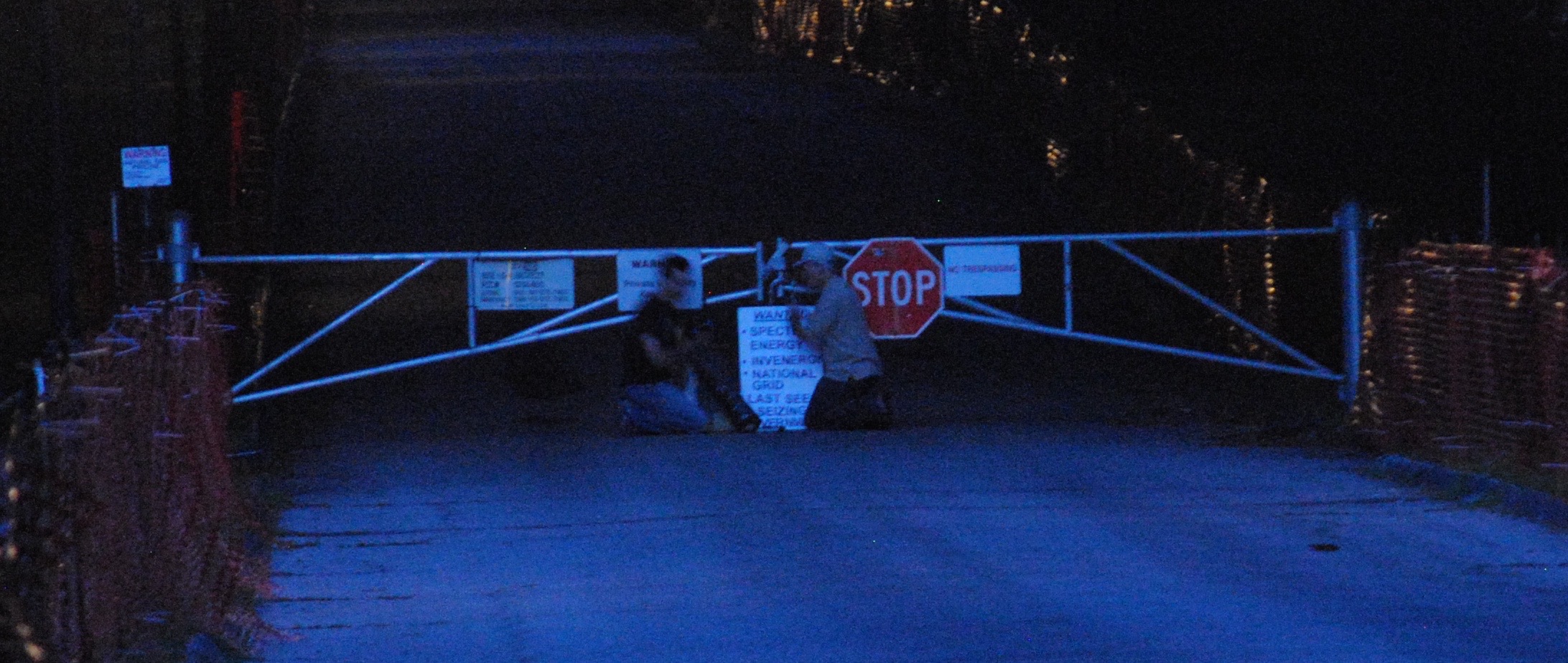

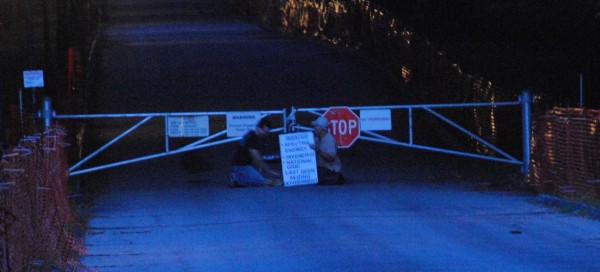 Nordgaard, a resident pediatrician at Boston Medical Center, stated after his arrest that “if we had legal means to stop this project, we would use them. Instead we are forced to protect families and communities through nonviolent civil disobedience, in proportion to the severity of this threat.” Nightingale, a professor of physics at University of Rhode Island and a member of Fossil Free Rhode Island and who was
Nordgaard, a resident pediatrician at Boston Medical Center, stated after his arrest that “if we had legal means to stop this project, we would use them. Instead we are forced to protect families and communities through nonviolent civil disobedience, in proportion to the severity of this threat.” Nightingale, a professor of physics at University of Rhode Island and a member of Fossil Free Rhode Island and who was  Nightingale stated: “Under the Public Trust Doctrine, government has a duty to preserve Earth’s gifts for present and future generations. The fact that we cannot use this argument to justify our actions in Burrillville [in Rhode Island’s courts] is but one symptom of the environmental injustice that pervades our system of government.”
Nightingale stated: “Under the Public Trust Doctrine, government has a duty to preserve Earth’s gifts for present and future generations. The fact that we cannot use this argument to justify our actions in Burrillville [in Rhode Island’s courts] is but one symptom of the environmental injustice that pervades our system of government.”


